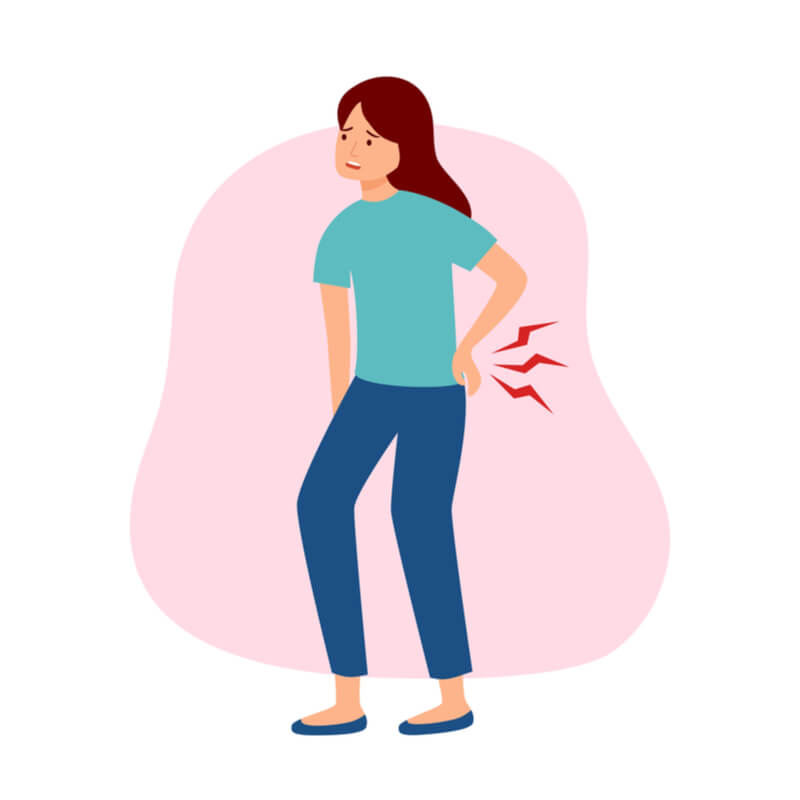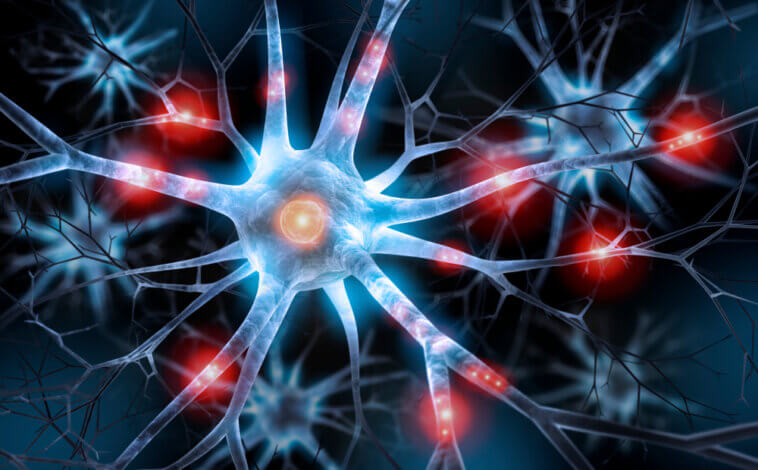If you're suffering from chronic nerve pain, you might be wondering what to do about it. Read this article to learn more about the causes and symptoms of this painful condition. You'll find out what causes nerve pain, what to do about it, and how to find the right treatment for you. If you're experiencing this pain, don't let it keep you from getting the rest you need. Listed below are some helpful tips for treating nerve pain.
Treatment options

Neuropathy treatment includes medications, physical therapy, and surgery. In addition, patients may require other treatments, including braces or walking aids. Standard treatments don't always work for nerve pain, however. If pain medication isn't enough, patients may seek out alternative therapies such as chiropractic care, massage therapy, or alternative medicine. While these therapies may be effective, they can also cause unwanted side effects and interfere with ongoing treatment. A comprehensive approach to neuropathy treatment may be the best option for patients.
Neuropathy can be caused by several different conditions, so diagnosis is critical. Sometimes, a doctor must perform extensive tests to determine the exact cause. In some cases, a temporary nerve block is recommended to test the condition and determine the most appropriate treatment. However, in most cases, nerve pain is a symptom of an underlying health issue that must be treated before a physician can recommend an appropriate treatment. Regardless of the cause, pain relief can be achieved with the proper treatment.
The most effective treatment for nerve pain is focused on the underlying cause of the pain. Some people report improved mobility after receiving nerve pain treatment. Other people report an improved range of motion and decreased pain. Combination therapies are also a viable option. Some treatments can be combined to help treat neuropathy, while others require more invasive treatments. If you have nerve pain, talk to your doctor today to determine your best course of action. This may be the best option for you.
In rare cases, a stronger medication may be prescribed. Although strong painkillers can help relieve pain, they can also lead to addiction and abuse. Talk therapy with a doctor is an excellent way to keep on track with a treatment plan. A therapist can also help patients change their lifestyles to manage pain better. Your doctor can also prescribe prescription medications for depression and seizures. If the pain is caused by a specific disease, lifestyle changes such as cutting back on alcohol and caffeine may alleviate the symptoms.
Besides neuropathic pain, antidepressants and anticonvulsants may be beneficial in treating symptoms of the condition. Certain anti-seizure drugs and antidepressants are effective in treating anxiety, depression, and chronic pain. If you suffer from severe nerve pain, you should speak with your doctor about your treatment options. They may prescribe a combination of treatments for your specific needs. For example, antidepressants and gabapentinoids can help alleviate chronic pain and reduce the effects of medications.
Nerve pain can be a frustrating condition. It can interfere with daily activities, cause depression, and even affect daily life. If you don't get proper care, your condition may get worse, making it impossible to enjoy life normally. Fortunately, there are a number of treatment options available to alleviate the symptoms of nerve pain. While it's tempting to try home remedies, doctors recommend consulting a professional for more effective pain management.
Causes
Over-the-counter medications for nerve pain can be helpful, but these medications only treat the symptoms and not the root cause. In severe cases, your doctor may recommend over-the-counter medications such as ibuprofen, acetaminophen, or gabapentenoids. Medications may also be prescribed for certain types of peripheral neuropathy. To treat nerve pain, your doctor may recommend lifestyle and dietary changes.
The most common cause of acquired neuropathic pain is physical trauma. Traumatic injuries can cause nerve damage by crushing, stretching, or detaching the nerve. A broken bone, for instance, can exert damaging pressure on neighboring nerves. Likewise, a slipped disk between vertebrae or at the spinal cord can compress nerve fibers. Other causes of nerve pain include infections and toxins, including lead, arsenic, and mercury.
Nerve pain can interfere with daily life and interfere with sleep. Undiagnosed nerve pain can lead to depression, anxiety, and poor quality of life. While it is important to seek medical attention, noninvasive treatments can bring significant relief. The causes of nerve pain vary according to the individual's symptoms. In general, however, it will be characterized by sudden pain, tingling, or burning. Symptoms may also include numbness or tingling, and mood changes.
In some cases, nerve pain is a sign of a more severe health condition. It is often accompanied by numbness, which can lead to further complications. The intensity of nerve pain varies depending on the specific type of damaged nerve, the pathways through which the signal travels, and the location of the damage. If the nerve is damaged, nerve pain is likely to occur at a different location, such as on the feet or legs.
Other possible causes of nerve pain include peripheral and central nervous system problems. Infections, trauma, or diabetes may affect peripheral nerves. Pain may also be triggered by physical activities such as sitting for long periods of time, brushing the affected area, or exposure to cold temperatures. It can also be triggered by emotional distress, and may be hereditary. As a result, the pain may be referred to as “peripheral neuropathy.”
Treatment of nerve pain in the hand depends on the specific causes of the condition. Home remedies may be beneficial, but medical treatment may also be needed. A doctor may recommend x-rays, an imaging test that can show structures of the hand. If there are signs of fractures or heart attacks, additional testing may be necessary. Treatment of nerve pain in the hand varies, depending on the cause and severity of the condition. Treatment may be best if the pain is diagnosed early.
Diabetes is the most common cause of nerve pain. When blood sugar is too high, it damages nerves. People with diabetes may experience numbness, tingling, or burning in the affected areas. Nerve pain can also result from some bacterial or viral infections. Seeing a doctor early can help prevent further damage. It is important to treat all of the possible causes of nerve pain to ensure that it does not turn into a chronic condition.
Symptoms

There are many causes of nerve pain. The pain may occur only in a specific part of the body, or it can be diffuse. In isolated cases, the pain may be caused by strain or injury to the muscles or a nerve. In diffuse cases, nerve pain may be caused by medications or underlying illness. Pain in one or more areas of the body is known as neuropathy. However, there are some treatments available to help control the pain.
One such treatment is neuropathic drugs. These are often more effective than standard painkillers for nerve pain. However, they have side effects that make them unsuitable for people with peripheral neuropathy. Treatment will be tailored to the individual based on the cause of the pain and the type of nerves damaged. However, if the symptoms persist, you should see a doctor right away. It may be necessary to undergo a variety of treatments to find the right one.
Neurological pain usually begins in the lower back and travels down the leg. Pain can also be associated with pins and needles, numbness, and weakness. It can also occur suddenly and be intermittent. However, if you experience numbness or weakness in a particular side of your body, it is a good idea to visit a doctor to rule out other causes. There are several ways to deal with nerve pain and get relief.
Symptoms of nerve pain can be a sign of a more serious underlying issue. Sensory nerves are responsible for alerting the brain to dangerous surfaces. Damage to these nerves could result in muscle weakness or even paralysis. Because sensory and motor nerves can function independently of one another, the condition can affect a person's quality of life. If it is untreated, however, nerve pain can be debilitating.
A healthcare provider will perform a physical exam and medical history to diagnose the underlying cause of the pain. During this process, the healthcare provider will assess the patient's reflexes and sensitivity to touch. Then, he or she may recommend multimodal therapy (a combination of medicines, physical therapy, and psychological counseling) for symptom control. Treatment may involve pain relief medication and dietary changes to reduce the severity of nerve pain.
While the cause of nerve pain may vary from one person to another, a common treatment for the condition is non-invasive. In the meantime, it's important to find a doctor that specializes in treating nerve pain. Non-surgical treatments can offer significant relief. These include massage, acupuncture, and electro-stimulation. However, they should be sought out from a medical professional in a timely manner.
Medical treatments for nerve pain vary widely. Opioid painkillers are often prescribed. These medications can reduce the severity of the symptoms, but they may also cause side effects and be addictive. A variety of medicines are available to treat the symptoms of nerve pain, including anticonvulsants, antidepressants, and painkillers. Acupuncture can also be effective for nerve pain, although there is little evidence to support this treatment.




Comments
Loading…